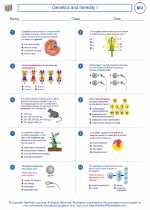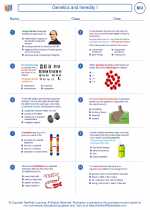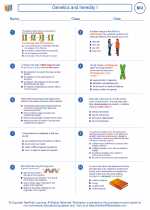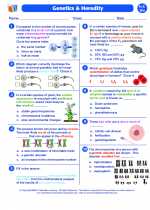Industrial Technology
Definition
Industrial technology, also known as industrial engineering or industrial design, is the application of engineering and design principles to improve the efficiency, productivity, and quality of industrial processes, systems, and products. It involves the development, improvement, and implementation of integrated systems of people, money, knowledge, information, equipment, energy, and materials.
Key Concepts
1. Manufacturing processes and systems
2. Product design and development
3. Quality control and improvement
4. Industrial automation and robotics
5. Supply chain management
Study Guide
Here are some key topics to study when learning about industrial technology:
1. Manufacturing Processes and Systems
Focus on understanding different manufacturing processes such as casting, machining, forming, and welding. Learn about production systems like lean manufacturing, just-in-time, and cellular manufacturing.
2. Product Design and Development
Study the principles of product design, including CAD (computer-aided design) and CAM (computer-aided manufacturing) software. Understand the stages of product development, from concept generation to prototyping and testing.
3. Quality Control and Improvement
Explore the concepts of quality management, statistical process control, and Six Sigma. Learn about tools and techniques for improving product quality and reducing defects.
4. Industrial Automation and Robotics
Gain an understanding of automated manufacturing systems, PLCs (programmable logic controllers), and robotics in industrial applications. Learn about the advantages and challenges of automation in industry.
5. Supply Chain Management
Study the principles of supply chain management, including inventory control, logistics, and procurement. Understand the integration of suppliers, manufacturers, distributors, and customers in the supply chain.
Real-World Applications
Industrial technology is applied in various industries such as automotive, aerospace, electronics, food processing, and pharmaceuticals. It plays a crucial role in improving efficiency, reducing waste, and enhancing product quality in manufacturing operations.
[Industrial Technology] Related Worksheets and Study Guides:
.◂Biology Worksheets and Study Guides High School. Genetics and heredity I

 Worksheet/Answer key
Worksheet/Answer key
 Worksheet/Answer key
Worksheet/Answer key
 Worksheet/Answer key
Worksheet/Answer key
 Vocabulary/Answer key
Vocabulary/Answer key
 Vocabulary/Answer key
Vocabulary/Answer key
 Vocabulary/Answer key
Vocabulary/Answer key
 Vocabulary/Answer key
Vocabulary/Answer key
 Vocabulary/Answer key
Vocabulary/Answer key
 Vocabulary/Answer key
Vocabulary/Answer key
 Vocabulary/Answer key
Vocabulary/Answer key
